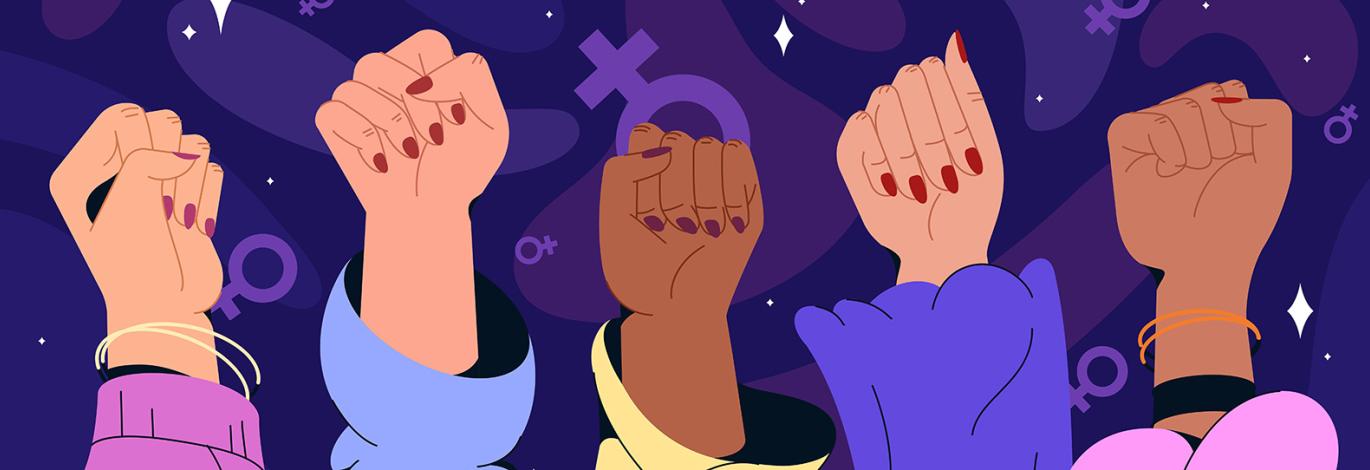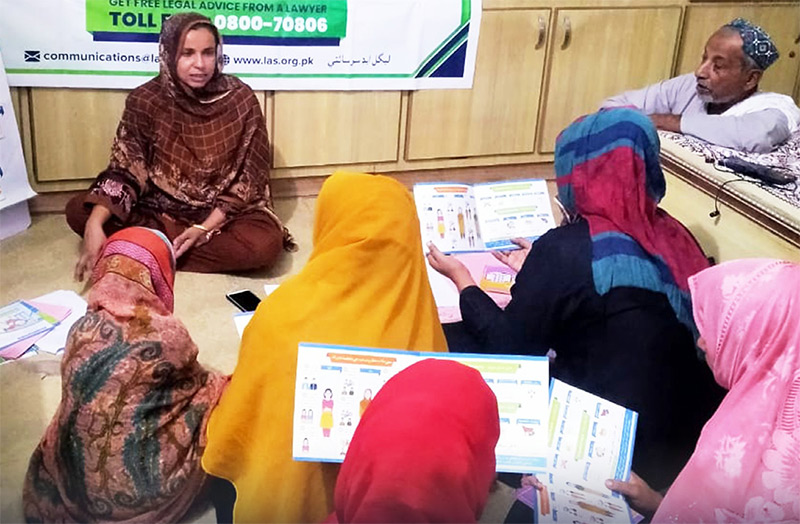
 In Larkana, Ayesha and her husband decide that he will transfer half of their family property that was previously in his name to Ayesha in recognition of her reproductive labor that had contributed to the family income. In Karachi, Saima asks her fiancé for a negotiation of the terms of their nikahnama. When he prevaricates, she realizes that perhaps this marriage is not meant to be and calls off the engagement. Saima’s decision sparks a conversation about marital rights in her community. These two instances are part of a larger change that appears to be coming about in 3 districts in Sindh, Pakistan.2 Women, and members of local communities in these districts are making the journey from being passive objects, operated upon by the law, to more active navigators of the law that governs their lives.
In Larkana, Ayesha and her husband decide that he will transfer half of their family property that was previously in his name to Ayesha in recognition of her reproductive labor that had contributed to the family income. In Karachi, Saima asks her fiancé for a negotiation of the terms of their nikahnama. When he prevaricates, she realizes that perhaps this marriage is not meant to be and calls off the engagement. Saima’s decision sparks a conversation about marital rights in her community. These two instances are part of a larger change that appears to be coming about in 3 districts in Sindh, Pakistan.2 Women, and members of local communities in these districts are making the journey from being passive objects, operated upon by the law, to more active navigators of the law that governs their lives.
Ayesha and Saima are community paralegals – women who have received training in basic law and legal process. Armed with this knowledge, they are part of a larger cohort of paralegals across the province of Sindh. This article suggests that the training of community paralegals is an effective step towards legal empowerment, one that should be explored more deeply in other parts of the country.
History in the postcolonial world is replete with examples of well-intentioned interventions meant to improve citizen access to justice. Interventions have focused on making formal systems work better, improving the speed and ease with which state institutions may be spurred into motion, or facilitating the provision of legal aid to help the marginalized gain access to the system. These approaches, while useful to some extent, almost entirely exclude the citizen from their purview, proceeding on the assumption that some form of expert help must be offered for people to manage their lives and if that expertise is provided well enough, it makes for a level playing field. Such an idealized notion of law as neutral and efficient if freed from certain fetters, ignores the reality that the law works very differently for different groups of people. In fact, I would argue that such well-meaning interventions perpetuate disempowerment for marginalized groups. Extant studies, and the obvious failure to achieve an ideal state of equality of access to the law, in fact demonstrate that recourse to formal structures of legality varies depending on the nature and structure of marginalization that individuals and communities experience. Citizens often look to resolve conflicts, dispossession and other harms in more informal spaces, for reasons which range from convenience to the reality and perception of disempowerment when dealing with formal state structures.
Through a recognition of and as a response to such a reality, the idea of legal empowerment was proposed in the early 2000s. Legal empowerment focusses instead on bolstering the agency of citizens, increasing their capacity to exercise their rights both within and outside the formal state structure. This kind of intervention also avoids the red tape and inertia of institutional reform. In Pakistan, the Legal Aid Society in Sindh (LAS) is one of the organizations that has piloted a community paralegal program as part of its development work. Building on its expertise and the success of other programs in community awareness, LAS developed a community paralegal program to work in tandem with the legal aid services it was already providing. One of the projects focused exclusively on women’s right to property.
For the Women’s Right to Legal Property (WRLP) program, LAS recruited women between the ages of 25 and 40 who could read and write and were generally well reputed in the community. These women were given short, interactive trainings by a lawyer, and provided with support in the form of a field office and a legal officer. Together, these teams began conducting legal awareness sessions in the community. An important aspect of a paralegal program is its low reliance on continued active support. Paralegals are rooted in the community they serve and are able to act as intermediaries between the people and formal state structures.
Although the paralegals belong to the community, they represent a new ideology, one that provides a multitude of options and does not recommend formal legal mechanisms as the only forum for resolution of disputes or attainment of a legal right.11 The approach they represent involves greater trust in informal mechanisms. However, it takes longer to build trust and reliance, both of which do not follow any coherent process or timelines. In Sindh, while there has been pushback by some segments, it has also resulted in a (sometimes grudging) reliance on the paralegals for guidance and help when matters come to a head. For women of minority communities, it has allowed them to become the voice of the community in a generalized, political way. A Hindu paralegal who faced staunch opposition to joining the training from her extended family was greeted like a celebrity upon her return. She is now contesting local government elections for a minority seat. In another example, a paralegal stood up against her family to ensure her brother’s widow was not deprived of her inheritance.
Paralegals are rooted in the community they serve and are able to act as intermediaries between the people and formal state structures.
In the assessment of those who have maintained an eye on the project in Sindh, success has been evident. Young women paralegals, who were till now generally powerless and subject to the caprice of the older folk are seen with a mixture of awe and respect historically reserved for elderly community leaders. Since the focus is not on the outcome, but on the agent, the paralegal program has equipped women with legal literacy and awareness. The paralegals most powerful tool is their knowledge; and their ability to connect with other women in the community. As mentioned by the Senior Program Coordinator at LAS, having a lawyer on speed dial also doesn’t hurt.
In these small communities of Sindh, there is a visible, cascading effect of legal empowerment, beginning with the paralegals, and flowing out to all women as they draw on each other’s knowledge and resilience, and do not always have to rely on men, or formal state structures to address their concerns. The have begun to rely on their personal connection to this woman from their community, who also happens to be a paralegal, for advice and guidance in legal and other matters. The result is incremental change in attitudes, a more reflective approach to resolution of disputes and the overall development of informed citizenship.
Young women paralegals, who were till now generally powerless and subject to the caprice of the older folk are seen with a mixture of awe and respect historically reserved for elderly community leaders.
Angbeen A. Mirza is an Assistant Professor at the Shaikh Ahmad Hassan School of Law. She has worked with the Legal Aid Society as a paralegal trainer for various programmes.
